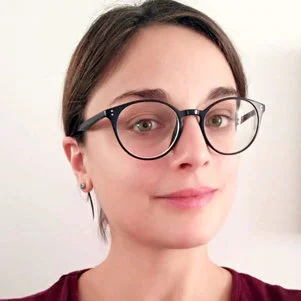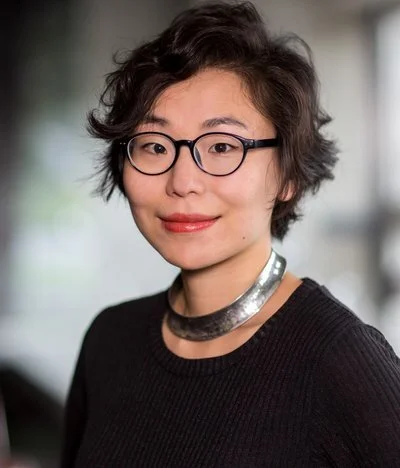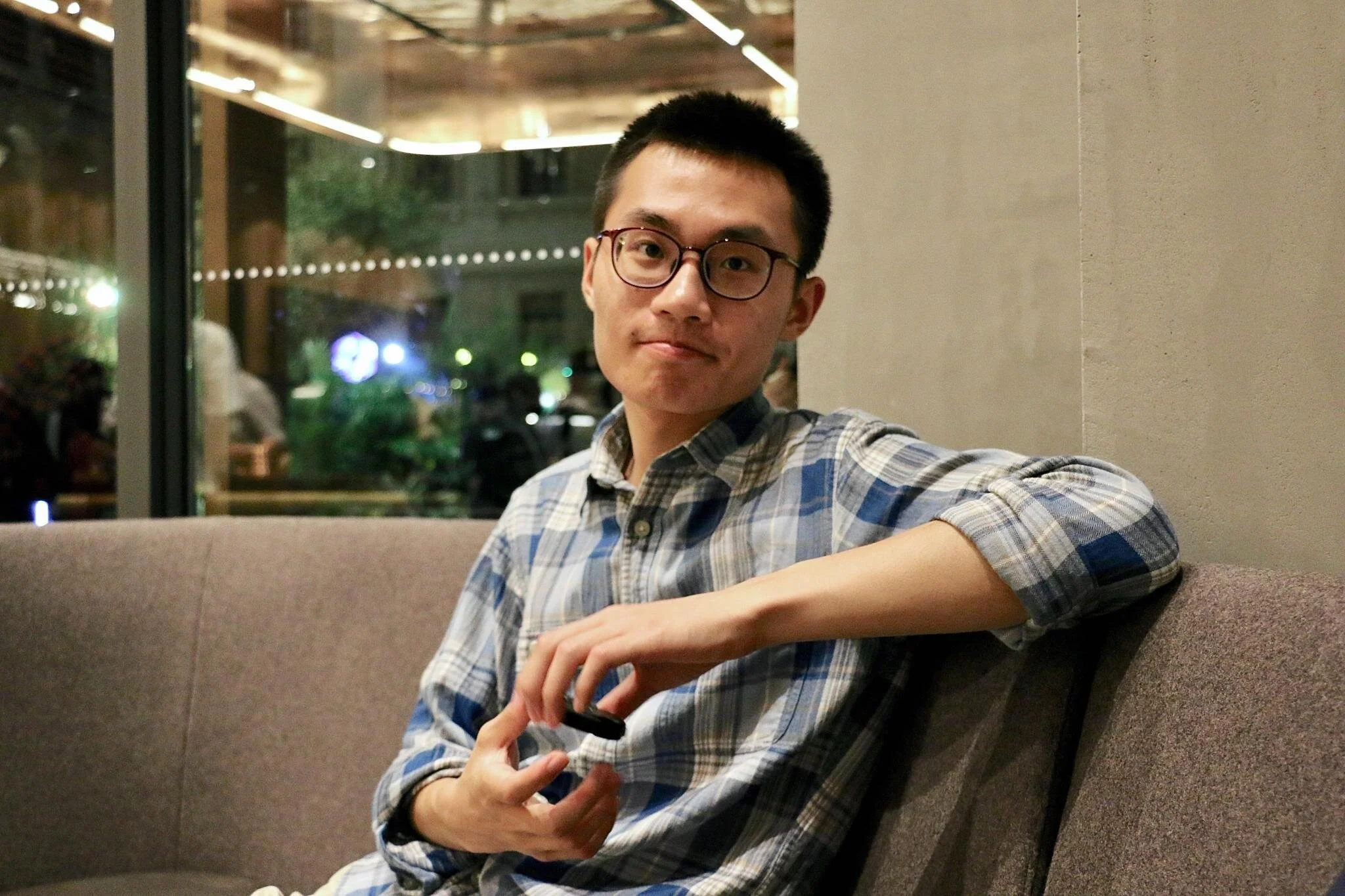-
Dr. ir. Cristina Zaga
Cristina Zaga is an Assistant Professor, speaker, and maker of poetic robots. At the Human-Centered Design Group and The DesignLab of the University of Twente, Cristina’s research bridges engineering, design, and social science to develop robotic technology responsibly and in a transdisciplinary fashion. Cristina believes in the power of poetic computation to bring about future-oriented reflection in robot development.
Currently, she co-leads a 4TU consortium on co-designing embodied AI (from robots to smart objects, from e-health agents to chatbots) that takes diversity, equity, and inclusion (DEI) into account. In the consortium, her research focus bridge engineering practices to design, social science, and citizen participation for responsible DEI in embodied AI.
Her effort in this direction is made concrete by co-developing Responsible Futuring, a transdisciplinary approach to co-shape the future we want to live in. She is regularly invited as a keynote speaker at international and national events (e.g., TEDx, LaserTalks, DDW) and she has organized workshops at HRI, Ro-Man and design conferences. Her award-winning work in Human-Robot Interaction and Responsible Technology has received many academic and societal accolades, for instance the Google Women TechMaker Scholarship 2018 for her research quality and her efforts to make STEM more inclusive to women and children.
-

Dr. Nazli Cila
Nazli Cila is an Assistant Professor at Delft University of Technology, Department of Human-Centered Design, Connected Everyday Lab. Her work combines interaction design with cognitive/social psychology and humanities. She integrates empirical work (i.e., experimentation, future modelling, and prototyping) with philosophical, practical, and ethical issues surrounding collaborations with embodied agents.
Her academic background is in industrial design. She holds a PhD degree from TU Delft. Nazli also worked as a Researcher/Lecturer at the Amsterdam University of Applied Sciences and as a Research Assistant at Middle East Technical University. She have taught courses on Design Research and Interaction Design, coached students during their graduation, and co-founded a Master program on Digital Design. She publishes regularly in human-computer interaction journals and conferences; and lecture on the above topics at (inter)national events.
-

Dr. ir. Maria Luce Lupetti
Maria Luce Lupetti is a an Assistant Professor at TU Delft. Her research lays at the intersection of design, AI, and robotics. She holds a PhD cum laude in “Production, Management and Design” from Politecnico di Torino, Italy (2018). Her doctoral research, focused on human-robot interaction and play for children, was supported by the Italian telecommunication company TIM. Prior to this position, Maria Luce was a Research Fellow at Amsterdam Metropolitan Solutions Institute (2018-2019)
-

dr. Minha Lee
Minha Lee is an Assistant Professor at TU/e. She is affiliated with the Center for Humans and Technology of the TU/e and the 4TU research center Humans and Technology for continuous collaboration between four technical universities of the Netherlands. Her home base is Atlas where the Industrial Design department is located. Her interest in moral emotions centers on compassion and how it can help with mental well-being. She is curious about other moral emotions like gratitude, guilt, or awe, and if technology can be incorporated to explore them. She completed her PhD at the TU/e's Human-Technology Interaction and Philosophy & Ethics groups. Her dissertation was on interactional morality. Previously, she studied Human-Centered Multimedia at University of Amsterdam, Philosophy at University of Minnesota - Twin Cities, and Digital Arts at Pratt Institute where she created works like an animated short that was apparently banned by a festival.
-

Dr. Gijs Huisman
Gijs Huisman is Assistant Professor of embodied interaction at the Faculty of Industrial Design Engineering at TU Delft. His main interest is in how our sense of touch plays a role in technology-mediated social interactions, in particular in shaping social presence, intimacy, and empathy. Gijs’ research is grounded in theories of embodied cognition that he applies to the research and design of digital/physical systems. Here, the role of the body in (social) interactions takes centre stage.
Before joining the IDE faculty, Gijs completed a PhD on Social Touch Technology at the University of Twente, a postdoc at the 4TU Centre for Humans and technology focussing on multi-sensory VR, co-founded a startup where he worked on the design of haptic products for social interactions, and coordinated work on digital/physical systems grounded in the Sustainable Development Goals at the Amsterdam University of Applied Sciences’ Digital Society School.
-

Dr. Eduard Fosch-Villaronga
Dr. Fosch-Villaronga is an Assistant Professor at the eLaw Center for Law and Digital Technologies at Leiden University (NL) where he investigates legal and regulatory aspects of robot and AI technologies, with a special focus on healthcare. Eduard recently published the book ‘Robots, Healthcare, and the Law. Regulating Automation in Personal Care’ with Routledge and is interested in human-robot interaction, responsible innovation, and the future of law.
Eduard is the co-leader of the Ethical, Legal, and Societal Aspects Working Group at the H2020 Cost Action 16116 on Wearable Robots and the Social Responsibility Working Group at the H2020 Cost Action 19121 GoodBrother. Eduard served the European Commission in the Sub-Group on Artificial Intelligence (AI), connected products and other new challenges in product safety to the Consumer Safety Network (CSN) to revise the General Product Safety directive.
Previously, he worked as a Marie Skłodowska-Curie Postdoctoral Researcher under the LEaDing Fellows at eLaw (Jan 2019-Dec 2020). He also was a postdoc at the Microsoft Cloud Computing Research Center at Queen Mary University of London (the UK, 2018) investigating the legal implications of cloud robotics; and at the University of Twente (NL, 2017) as a postdoc, exploring iterative regulatory modes for robot governance. Eduard Fosch-Villaronga holds an Erasmus Mundus Joint Doctorate (EMJD) in Law, Science, and Technology coordinated by the University of Bologna (IT, 2017), an LL.M. from University of Toulouse (FR, 2012), an M.A. from the Autonomous University of Madrid (ES), and an LL.B. from the Autonomous University of Barcelona (CAT, 2011). Eduard is also a qualified lawyer in Spain and his publications are available online
-

Wenkai Li
Wenkai is a research assistant under the Gendering Algorithms project and focuses on the legal and policy aspect of the research. He holds an Advanced LL.M. in Law and Digital Technologies at Leiden University and a Bachelor of Law in China.
-

Imani Dap
Imani is a research assistant for the Gendering Algorithms project with a focus on the research aspects related to computer science. She is currently pursuing a MSc in Media Technology and has a BSc in Creative Media and Game Technologies acquired at Rotterdam University of Applied Sciences.
